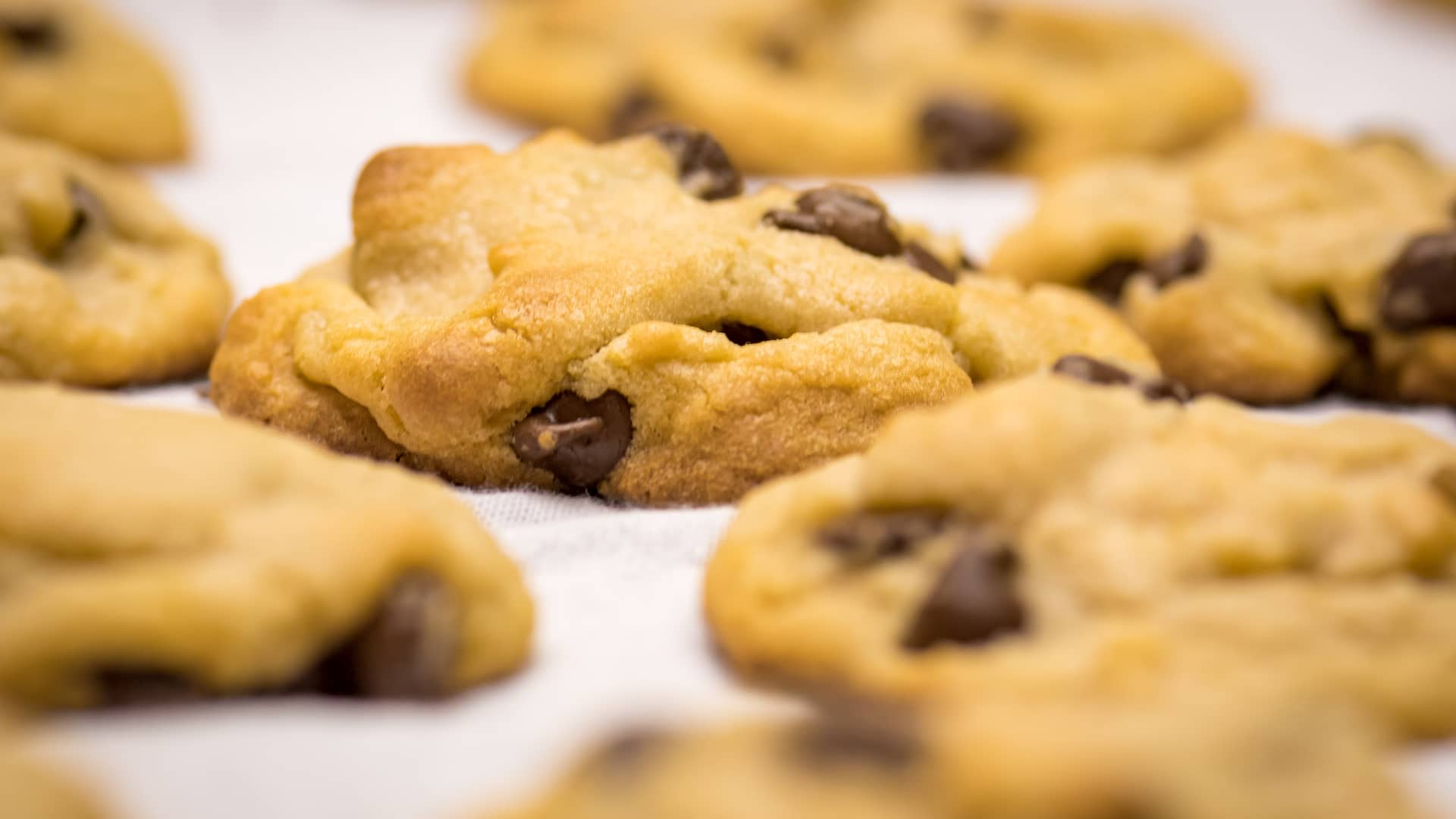Products You May Like
There’s a war going on in Utah – not over politics or drugs – but cookies.
Crumbl Cookies, which has more than 300 stores in 36 states, has declared war on smaller competitors Dirty Dough (six stores in Utah and Florida) and Crave (nine stores in Utah and Florida.) And it’s setting social media ablaze.
“Are cookies really worth suing over?” asked a TikTok user. For the founders of Crumbl, the answer is yes.
The lawsuits started flying in May, when Crumbl separately sued Dirty Dough and Crave, claiming in part that both brands’ “packaging, decor and presentation” is “confusingly similar” to its own. Crumbl filed the suits in Utah, where it’s headquartered.
Dirty Dough fired back with commercials mocking Crumbl.
In one advertisement, a big SUV pulls up next to a kids’ lemonade stand. A group of men jump out, telling the kids to “shut down the entire operation.” A young girl replies, “Are you crazy, why?” To which he responds, “Cause you’re selling cookies – that’s our thing.”
Dirty Dough also launched a billboard campaign in Utah, including one that read: “Cookies so good – we’re being sued!”
“It’s a silly situation,” said Dirty Dough founder Bennett Maxwell, “and it’s just like, OK, we’re gonna have some fun with it.”
He added: “Just imagine pizza companies doing to each other, right? Like sending pictures of a pepperoni pizza, putting them in a lawsuit, and say ‘Look, your pepperoni pizza looks mightly similar to mine’.”
The co-founder of Crave, Trent English, also believes Crumbl’s accusations are half-baked.
“Our branding is black and gold. [Crumbl’s is] pink and black. Their logo is … a chef wearing a hat. Ours is two overlapping cookies,” English said. “I don’t really see any confusion at all. I think most people can tell us apart just fine.”
Founded in 2017, Crumbl – which has 6 million followers on TikTok and 3 million followers on Instagram – has reviewers that rate its cookie flavors that are released each week.
In the lawsuits, the company claims the two other cookie makers stole its idea to release new flavors every week.
“They don’t want us to do rotating flavors,” Bennett said. “Because I mean, you know, they invented that – the ability to rotate and have it for a limited time offer – apparently Crumbl invented it five years ago.”
Dirty Dough’s founder told CNBC that since the lawsuits were filed, social media around the “cookie wars” has been great for business – with sales doubling. Meanwhile, Crave says the company has seen a 50% jump in sales since Crumbl sued.
CNBC interviewed Crumbl co-founders Jason McGowan and Sawyer Hemsley in 2021 about their booming business. At the time, Hemsley told CNBC: “I have to pinch myself every day, because we talk about sprinkles over the conference table. And – and pink frosting.”
After the lawsuits were filed, CNBC reached out to Crumbl for a response. However, the founders turned down a request for an interview and instead sent a statement over email, which read in part: “Crumbl has taken legal action against two companies for trade dress and trademark infringement, one of which had stolen Crumbl recipes and trade secrets.”
Maxwell, the Dirty Dough founder, denied stealing Crumbl’s recipes. “Just look at our cookie again, you can’t get a more different product, you can taste it and it’s so much different,” he said.
Crumbl may face a high legal hurdle.
“It may be tough for Crumbl to show that consumers mistakenly believe that the defendant’s cookies are coming from Crumbl,” said Dyan Finguerra-Ducharme, a trademark attorney and partner at Pryor Cashman in New York. She has no connection to the case.
“Crumbl came up with a great idea – a whole business model, which [is] rotating cookies each week, delivering them warm in a box that fits the cookies snugly,” Finguerra-Ducharme said. “The problem is that Crumbl’s idea is not protected by intellectual property law.”
So, could the case go to a jury?
“It could be dismissed by showing a judge that as a matter of law, these marks don’t look alike,” Finguerra-Ducharme told CNBC.
“And if the marks don’t look alike,” she added, “that’s where the cookie crumbles.”
